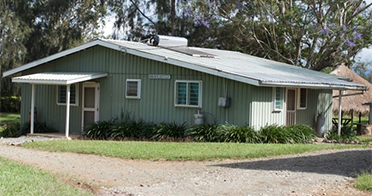
Volunteer Doctor Housing
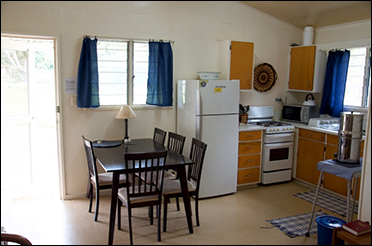
Volunteer Doctor Housing

Basketball Court

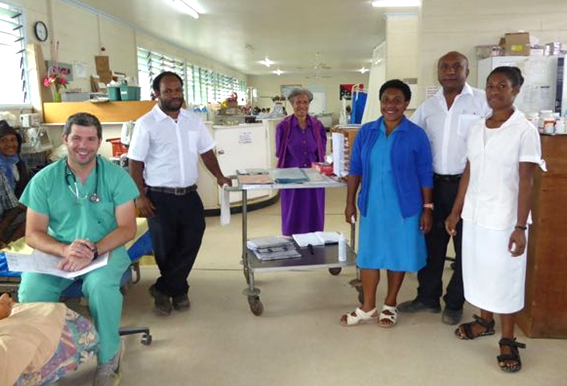
The staff at Kudjip Nazarene Hospital are grateful for opportunities to work alongside our medical volunteers and help train both International and Papua New Guinea residents and students each year. We have specific housing for our medical volunteers and trainees and our Volunteer Coordinator, Dr. Katherine Radcliffe, will be glad to work with you if you would like to consider serving or doing a rotation at Kudjip. We are especially limited in the number of medical students that we are able to accept each year, so please understand if we are not able to accommodate you.
We are also looking for Christian physicians who are interested in serving with us full time at Kudjip. Please contact us if you are interested.
Volunteer Physicians Interested in Working at Kudjip Nazarene Hospital please contact Dr. Katherine Radcliffe at volunteer@nazhealth.org for information.
Frequently Asked Questions
1. What is the climate like, and what kind of clothes should I bring?
2. What are the living accommodations like?
3. Is Malaria an issue?
4. What are the "On-Calls" like?
5. Will I have a phone, email, or internet access?
6. Are there any recreational activities?
7. What opportunities for worship are there?
8. Do I need to bring my own linens and kitchenware?
9. How much money should I bring?
Contact Dr. Katherine Radcliffe at volunteer@nazhealth.org for current information.
10. Hospital Station/Compound Description:
11. If I am bringing my "non-medical" spouse, what is there for them to do?
12. Are there any other guidelines I need to know?
13. What is the primary focus of Kudjip Nazarene Hospital?
14. Do I have to be a Christian or endorse the doctrines of the Church of the Nazarene to volunteer there?
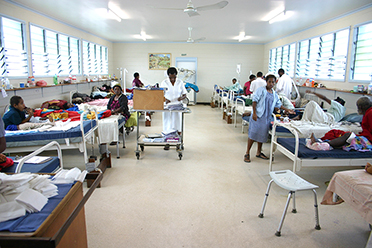
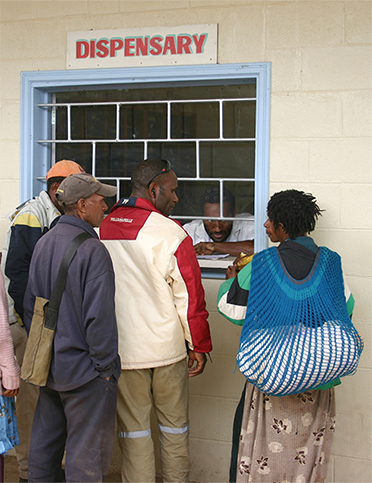



We have a 32 bed adult medicine ward, a 30 bed surgical ward, a 32 bed pediatric ward, a 12 bed tuberculosis ward, and a 28 bed maternity ward. We have a labor suite with 5 delivery beds. We have a nursery with the capacity to be flexible and hold 10 babies. We have two operating theaters and a minor procedure room. Our Outpatient Department includes 9 exam rooms and a 7 bed emergency room. We have both fixed and portable x-ray machines and can do most basic views. We have two ultrasound machines, which are used by all of our physicians. Our laboratory facilities include hematology and chemistry, as well as microscopy and blood banking. Unfortunately, we have no microbiology lab, but we are able to do serological tests for syphilis, Hepatitis B, and HIV.
Our medical staff presently includes family physicians, a pediatrician, ER doctor and general surgeons. All are residency-trained and board-certified. In addition, we frequently have visiting physicians in a variety of specialties.
Volunteers who come here usually have a wide variety of experiences. They generally are assigned a portion of one of our inpatient wards. They see those patients on morning rounds and then spend the remainder of their day in the Outpatient Department. Volunteers in the primary care specialties usually see outpatients along with our staff doctors. Those in more limited specialties usually see referral cases. Since practicing here can be very different than practicing in more developed countries, we try to make sure that our staff doctors are available to answer questions as needed. Surgeons usually spend 2 or 3 days a week in the OR. Many surgical specialists enjoy the chance to scrub with our general surgeon on cases outside their usual experience.
Primary care doctors commonly do more procedures than they would in their home country. They often do several thoracentesis and paracentesis, repair complex lacerations, do many I&D’s, and lumbar punctures. They may do ultrasounds, D&C’s, manual extraction of retained placentas, and closed reductions of various fractures. Depending on their experience they may perform cesarean sections.
Most of our volunteers take call. The primary care doctors take general call in rotation with our staff doctors. If their skills do not include obstetrics, a staff doctor is assigned back-up duties for OB. Specialist’s usually make themselves available after hours for emergencies in their specialties.
Volunteers also have opportunities to teach. Our staff doctors are always striving to broaden their skills, and usually take advantage of the knowledge of any volunteers that come. In addition, we often have students or residents here, and volunteers that are here at the same time often get involved in teaching.
Outside the hospital, volunteers have opportunities to gain an understanding of the people of the Whagi Valley. They often visit nearby villages, visit with local people and attend cultural events. Most worship in “bush” churches on some of the Sundays that they are here. There are many interesting hikes in the vicinity of Kudjip Nazarene Hospital (KNH) that afford opportunities to see both people and beautiful scenery. Visitors usually go into the nearby town of Mount Hagen once or twice during their stay.
In addition, volunteers usually get to know the staff of KNH well. They are usually invited into the homes of the medical and non-medical missionaries, and are included in activities on the station. Those with a personal interest in medical missions have opportunities to ask questions of missionaries at various stages of their careers, and to discuss their own plans and aspirations with experienced missionaries. They also are able to observe how missionaries and their families live, and to gain an understanding of the challenges and the rewards of missionary life.


